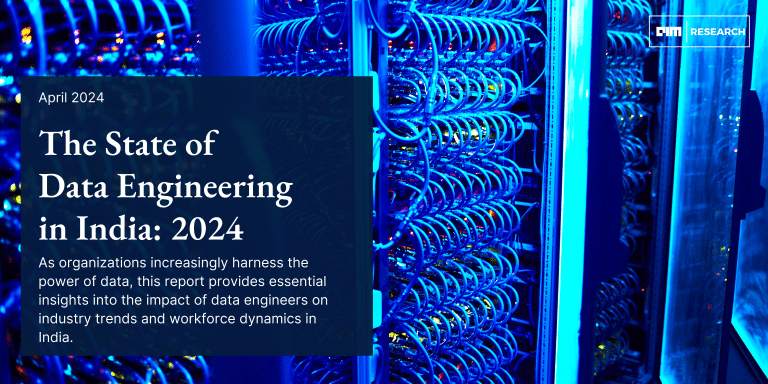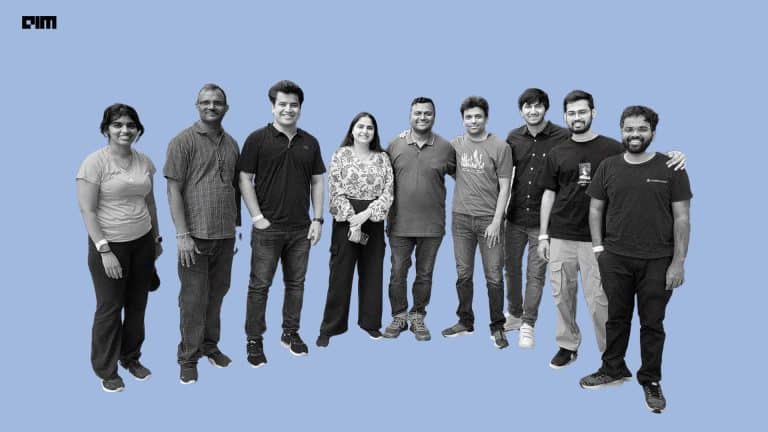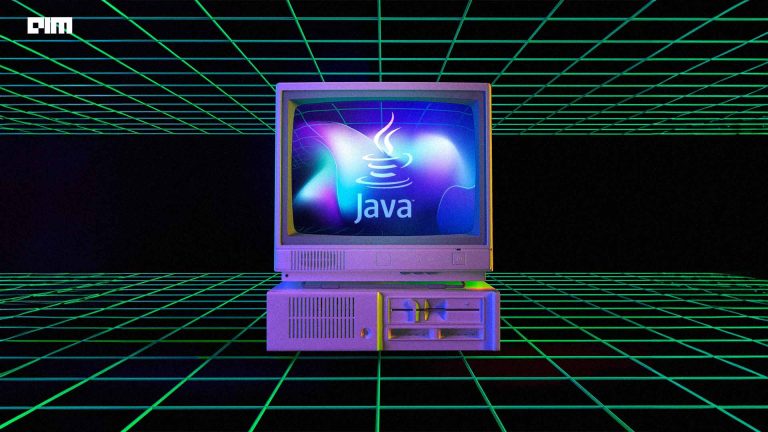Back in 2004, two IIM-Lucknow graduates from Kolkata decided to take on US’ burger and pizza chains with their Bengali counterpart– the Kolkata Kati roll. Close to two decades later, founders Jaydeep Barman and Kallol Banerjee pivoted time and again to convert wrap-chain Faasos to a food tech unicorn today, Rebel Foods.
Rebel Foods houses brands Behrouz Biryani, Mandarin Oak, Ovenstory, SLAY, The Good Bowl, Wendy’s, Sweet Truth and its flagship brand Faasos. It boasts of more than 350 kitchens across the country, South-East Asia, UK and UAE.
The pandemic has caused a huge dent in restaurant businesses, and while recovering from the past two waves of COVID-19 has been difficult, adoption of technology has been a growing trend across the sector. Rebel Foods has heavily invested and implemented technology in its cloud kitchens to ensure seamless operations. In a recent conversation with CTO Amit Kumar Gupta, we explore how the recently-turned unicorn implements automation and machine learning (ML) in its kitchens.
Amit is an alumnus of BITS Pilani and has earlier worked with MakeMyTrip as its Group Architect and Director of Technology. He joined Rebel Foods last year, at the break of COVID-19, at a time when the food-tech company was experimenting with new business models. As the CTO, Amit’s role is primarily focused on execution, tech operations and strategy to align overall technology direction towards the organisation’s vision statement and, thus, in achieving the short term and long term CX and business goals.
Edited excerpts from the conversation:
AIM: What are your responsibilities as the CTO?
Amit Gupta: The execution part includes integrating technology into building superior customer experiences and automating workflows/routines across every function in the organisation. All our kitchens are technologically equipped which run on the Rebel Operating System (Rebel OS) that marries technology with culinary expertise and supply chain.
The operations involve overseeing the data, security, maintenance, network, system designs and scalability of the organisation. The strategy part involves long term design thinking to seek out the current and future technology that will drive the company’s success. This role also drives the organisation thinking on tech-first in each and everything and how technology will evolve as a business line for the industry and business.
AIM: When did you realise the need for technology in a Rebel Foods kitchen? What was the turning point?
Amit Gupta: Technology was always the core principle at Rebel Foods since the start. Faasos was the first brand that took orders on Twitter. With our current state of the art technology, we have expanded to 10-plus countries with 4000-plus internet restaurants with more than 45 brands as a part of our kitchen. The complexity for running and scaling multi-brand operations is quite high due to the number of products/SKUs, people and processes, and it is almost impossible to do so without technology interventions and systems in end-to-end demand and supply operations. The first turning point for us remains when we built the Rebel OS, which allowed us to launch multiple brands from one kitchen using technology.
AIM: How are you leveraging technology in your kitchens?
Amit Gupta: At Rebel Foods, technology is something that we are constantly developing and implementing across all our kitchens and other verticals such as supply chain and delivery as our own Rebel Operating Model.
We have developed almost all our technology in-house and believe in investing behind the talent to build distributed and scalable tech using open-source technologies for the long term benefits. We have, as a matter of fact, focused on hiring and strengthening our tech and product teams in this CY across different functions. We have doubled down on our tech and product team in 2021, and we aim to continue strengthening these teams further.
AIM: Rebel Foods uses 10 different robotics units across its kitchens— please explain their functions and working.
Amit Gupta: We have multiple industry-first automated products in our kitchens. Most of these are built and validated in-house with partnerships with some of the manufacturers. We have IoT enabled deep-fryers and a sensor-enabled quality check station which helps keep consistency and taste profiles at check across all our kitchens.
We have also introduced robotics-led smart friers, which can detect the food shape – on the basis of that shape; it automatically adjusts the oil temperature without human intervention. Our automated wok is now present in over 100+ kitchens. It dispenses oil, water, and other ingredients based on the order.
We have a data science model coupled with ML algorithms of a high-accuracy level to forecast demands. We have a Visual AIQC Machine, which we call the SWAT machine, that helps analyse the size, weight, appearance and temperature of every dish prepared. If any one of the parameters is not met, the machine raises an alarm that notifies people in the kitchen. Since this alarm is raised in real-time, the team can intervene and correct the dish by making changes, thus, creating negligible food waste.
AIM: Explain the tech stack at Rebel Foods.
Amit Gupta: Over the past couple of years, we have focused extensively on building our Rebel OS, which comprises three things:
- A full-stack technology from inventory and kitchen management all the way to demand management and fulfillment.
- Supply chain capabilities for sourcing, warehousing, and moving input materials safely in any shape and form across the width and length of the nation and now some of the international markets.
- Culinary expertise and capabilities to break down menus into small SOP-driven steps that don’t require any additional skill. To have trained staff in the kitchen rather than specialised chefs.
These elements are available across all 400+ kitchens across 60+ Indian cities.
The new business model of launcher partners enables the brands to integrate instantly with all distribution channels and brings cost efficiency with shared resources. We partner with brands who reflect our promise of placing customers first and extend our expertise and scale them towards becoming a national brand on delivery. We first start with brands in select regions and slowly scale the brands capturing customer demand and delight.
We mostly use open-source technologies and a few cloud-native technologies to build distributed and scalable systems for all our workflows. Some of these technologies are primarily Java, JavaScript (Node, React, Angular), Redis, Kafka, MySQL, MongoDB, Spark, Presto(Hive), Maps, Custom Chatbots, Android/iOS native and hybrid development, SAP ERP and Infrastructure management with containerisation on AWS/Azure/GCP infrastructure.
AIM: What tech tools do you use to ensure seamless processes?
Amit Gupta: We have mostly developed our systems, applications and algorithms in-house, which gives us immense control on flexibility and speed to build seamless processes and experiences. This also provides an opportunity to build engineering and operational excellence in tech function “to do more with less resources”. We take the maximum use of established open-source technologies to keep the tech opex costs optimal. This helps us in keeping the long term tech operational cost on a logarithmic curve rather than a linear growth (or even more dangerous exponential curve) with the increase of business/scale.
A few of our key technology platforms could be thought in the following verticals –
Food discovery/ordering: Our own channel EatSure app/web and backend platform for discovery-detail-checkouts, EatSure Sure Points Loyalty program, EatSure Gift Cards, API Integrations with all the food aggregators in different markets
- Food preparation: Systems are developed in-house to cater to different use cases like POS/Order Management/Catalogue Management, IoT-enabled devices/appliances in the kitchens, partner management and learning management
- Supply chain: Supply chain tower, ERP, Tracking and tracing, Inventory management, etc.;
- Food delivery/fulfilment: Systems are Auto allocation algorithms, API Integrations with multiple delivery partners in different markets, Customer Relationship Management, Post Sales experiences and chatbots.
AIM: How do you leverage ML at Rebel Foods?
Amit Gupta: Our data team works on many ML models such as demand/supply forecasting, recommendation and RFM segmentation for enhanced customer experiences, feedback analysis to improve CX, storefront design for faster discovery, rider auto-allocation to bring cost efficiency, delivery predictions to enhance CX, etc., being worked upon to solve interesting data science problems, some of which are very specific (perishable inventory forecasting and accuracy) to our industry. The MIS/BI/Analytics team builds many dashboard/reports/auto-generated alerts to take data-driven decisions in real-time or at defined time intervals.
AIM: Explain how you use data science models for real-time personalisation?
Amit Gupta: We have built a recommendation engine based on many fundamental aspects around data collection, storage, analysis and filtering. We collect data points such as – implicit (transactional/order history, search history, clicks and cart events), explicit (reviews, comments, ratings and instructions), demographics (user location), and taste profile (palette for specific ingredients).
We use a hybrid of collaborative and content-based filtering to provide real-time recommendations on checkout pages. We measure the success of our recommendation engine on the basis of relevance/clicks, faster checkouts, and cross-sell/up-sell metrics. With constant improvement and fine-tuning of our recommendation model, customers are able to find relevant products faster, which helps us save precious time of the customer and subsequently, the up-sell of our products (own channel) has increased two-fold in the last couple of quarters. The team is also working on providing real-time recommendations on other funnels as well to improve cross-selling.
AIM: What does the roadmap look like for Rebel Foods?
Amit Gupta: We believe 2022 will truly help us enhance our offering to customers and scale a variety of brands on the Rebel OS. We are building various customer-first tech products which will bring us closer to our customers. We are working on developing live streaming of dish preparations for our customers. IoT-enabled machines can get instructions from central systems, which can further be explored to be given in the consumer’s hands. We keep on evaluating and adopting emerging technology trends to remain closer to consumers in a fast-moving digital age. These are exciting times for us at Rebel Foods as we revolutionise the food tech space.



















































































